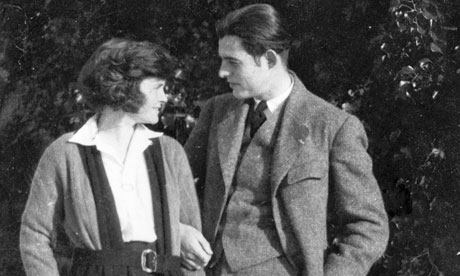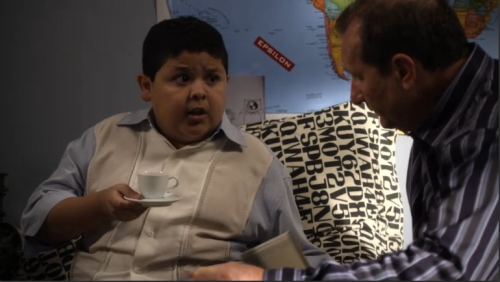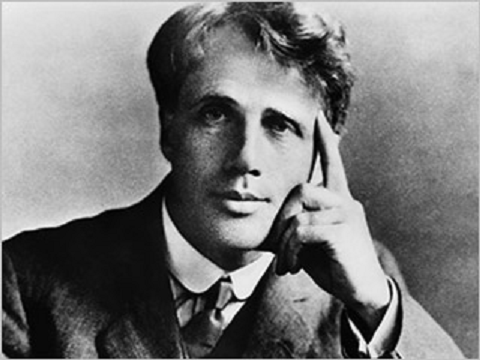It’s
been a year since I read my first bit of Proust and started putting down a few
random thoughts that came out of the experience, so it’s hard to remember
exactly what I expected as I prepared for my first real excursion into his
work. I suppose I expected to be daunted and discouraged- maybe even defeated
before finishing. But I was hardly prepared to be so totally swept away as I
was by Swann’s Way , the first novel
in his 7-volume masterwork, In Search of
Lost Time .
After
all, what could a modern reader possibly have in common with Proust, his
narrator, or Charles Swann, that monocled dandy of the Belle Epoque whose story
takes up the bulk of the novel? As it turns out, a helluva lot more than I
thought.
It
wasn’t the plot that knocked my socks off, or even the wonderful prose, but
Proust’s thoughtful plunge into memory. I found that some of my own memories
flickered to life again as Proust worked the billows on the embers of his own
forgotten past. He writes with such precise detail, that the reader is almost
forced to participate in his narrative and his memories, rather than play the
role of mere spectator.
As
someone whose childhood home has recently been gutted by new owners, and whose
elementary, junior high, and high schools were all razed and rebuilt before it
even occurred to me to go back in search of memories, I found myself deeply
moved by the narrator who wanders the Champs-Elysee in search of old haunts,
and who closes his book with the following agonizing lines:
“…how
paradoxical it is to seek in reality for the pictures that are stored in one’s
memory, which must inevitably lose the charm that comes to them from memory
itself and from their not being apprehended by the senses. The reality that I
had known no longer existed. …The places that we have known belong now only to
the little world of space on which we map them for our own convenience. None of
them was ever more than a thin slice, held between the contiguous impressions
that composed our life at that time; remembrance of a particular form is but
regret for a particular moment; and houses, roads, avenues are as fugitive,
alas, as the years.”
It’s
been exactly one hundred years since he first published those lines, and they
are as true today as they must have been in his time. Almost from the outset,
Proust introduces us to the concept of Involuntary Memory, the possibility of
an unbidden reminiscence triggered by unexpected sensations that carry some
magic of our former years. The most famous of these experiences is the episode
of the Madaleine:
“And
soon, mechanically, weary after a dull day with the prospect of a depressing
morrow, I raised to my lips a spoonful of the tea in which I had soaked a
morsel of the cake. No sooner had the warm liquid, and the crumbs with it,
touched my palate than a shudder ran through my whole body, and I stopped,
intent upon the extraordinary changes that were taking place. An exquisite
pleasure had invaded my senses, but individual, detached, with no suggestion of
its origin. And at once the vicissitudes of life had become indifferent to me,
its disasters innocuous, its brevity illusory- this new sensation having had me
on the effect which love has of filling me with a precious essence; or rather this essence was
not in me, it was myself. I had ceased to feel mediocre, accidental, mortal.
Whence could it have come to me, this all-powerful joy? I was conscious that it
was connected with the taste of tea and cake, but that it infinitely
transcended those savors, could not, indeed, be of the same nature as theirs.
Whence did it come? What did it signify? How could I seize upon and define
it?...
“And
suddenly the memory returns. The taste was that of the little crumb of
Madeleine which on Sunday mornings at Combray (because on those mornings I did
not go out before church time), when I went to say good day to her in her
bedroom, my aunt Leonie used to give me, dipping it first in her own cup of
real or of lime-flower tea.”
This
first involuntary memory, conjured by a few drops of tea, soon gushes into a
torrent of childhood memories that come flooding back to the narrator. He
spends entire sections of the book detailing the most minute episodes of his
boyhood. In doing so, he reminds us that for the child who experiences them,
they are anything but minute and insignificant.
In
one early example he recounts the angst of being sent to bed without his
routine kiss goodnight and the anguish that follows as he waits for his mother
to leave the party downstairs and come up to correct the injustice. (Spoiler
alert: she never comes!) This small vignette stretches for pages and pages, but
never becomes boring. Before the reader knows it, he is no longer a spectator,
but a participant. He feels the same angst as the kiss-deprived narrator,
because he can no doubt remember certain similar childhood agonies that seemed,
at the time, to stretch out forever.
For
me, there’s a memory of being inadvertently locked out in the snow by a
housesitter/babysitter who didn’t realize that ‘kindergarten me’ couldn’t reach
our doorbell or produce a decent knocking on our massive oak front door. How
long was I left out in the cold? It’s impossible for me to say. But it can’t
have been a short time, since my repentant baby-sitter made reparations by way
of a paint-dot coloring book that you transformed with a wet paintbrush- a
childhood wonder I don’t think I’ve seen since that trauma. What I do
know, is how long it felt .
And that is what Proust makes you feel again.
There’s
a mathematical explanation for all of this, of course. A five-year-old has only
lived 1,825 days, so each day he experiences makes up .055% of his young life,
whereas a thirty-five-year-old has lived 12,775 days, and each of his days only
comprises .0078% of his ever-lengthening existence. But whether you put stock
in that theory or not hardly matters. Proust doesn’t concoct explanations or
posit theories, he simply plumbs the depths of his memories and invites you to
do the same, reminding you what it was really like to think with a
five-year-old brain.
When
he seizes on a memory he wrings from it every last drop of life for the reader.
And just when you think he’s ready to move on, he picks up the carcass and
helps you suck the marrow right out of the bones. It’s fascinating, fascinating
stuff.
Yet
some of the memories are fleeting, and still pack all the punch of his
lengthier diversions. He describes a memory of watching the play of sunlight on
distant bell-towers that seemed to slide from one side of the road to the other
as his carriage wound its way along a crooked country path. I couldn’t help
recalling my own sense of wonder, gazing through the windows of my family’s
station wagon and watching the world zip by on an endless reel. For Proust the
magic lived in the ever-shifting church steeples; for me it lived in the
telephone wires that dipped and jumped between the poles like the live current
they carried.
Later
on in the book he writes beautifully about Swann’s coming across a brief
musical phrase that gave him no end of pleasure— as if it had been written
specifically for him. He explains Swann’s almost frantic search for the name of
the piece and the composer, and his aggravating inability to dig up the source
and have it played again for him:
“Swann
could learn nothing further. He had, of course, a number of musical friends,
but, vividly as he could recall the exquisite and inexpressible pleasure with
which the little phrase had given him, and could see, still, before his eyes
the forms that it had traced in outline, he was quite incapable of humming over
to them the air. And so, at last, he ceased to think of it.”
Who
can’t relate to the nagging itch of a half-remembered tune? If you can call up
some lyrics, sure- even a couple measly words can lead you to paydirt in the
age of search engines and YouTube videos. There are a handful of songs,
overheard in European grocery stores 15 years ago, that I’ve been able to track
down in this way; artists like Scooter or DarioG, that I never would have heard
replayed on American radio stations in a lifetime of listening. But what if
there are no lyrics? What if all you can do is hum incoherent pieces stupidly
to the few people who might miraculously know the answer, and do this for years
at a time with no success?
Here
again, Swann’s experience called to memory one of my own. My mystery phrase was hidden in the middle of the the Intermezzo Sinfonico from Mascagni’s Cavalleria Rusticana. For me, the
section from 1:28 to 2:30 is about the most sublime and moving piece of music
ever written. And I say that knowing full well how ridiculous it is for a
thirty-five-year old of my generation to use the word sublime. Have a listen:
Years
of fruitlessly checking “best of” classical music compilations and trying to
whistle people into some vague recognition of my mystery tune had prepared me
to never hear it again. And then one day I did
hear it again. And my relief at finding it again, at putting a name to
it, and being able to play it at will was mirrored exactly by the character of
Swann:
“But
tonight, at Mme. Verdurin’s, scarcely had the little pianist begun to play
when, suddenly, after a high note held on through two whole bars, Swann saw it
approaching, stealing forth from underneath that resonance, which was prolonged
and stretched out over it, like a curtain of sound, to veil the mystery of its
birth—and recognized, secret, whispering, articulate, the airy and fragrant
phrase that he had loved.”
I
could go on, but this is already the longest “review” I’ve ever posted. I
haven’t even touched on the story, or the pinpoint perfection of some of the
prose. But those aren’t the reasons I would recommend this book in the first
place. Swann’s Way may have a certified
“yawner” of a plot, but it’s an absolute thrill-ride for the memory. I’d
recommend it to anyone with a past. It’s no wonder Proust is mentioned again
and again as an influence by writers from Virginia Woolf to Jennifer Egan.
Take
it for a whirl:

























